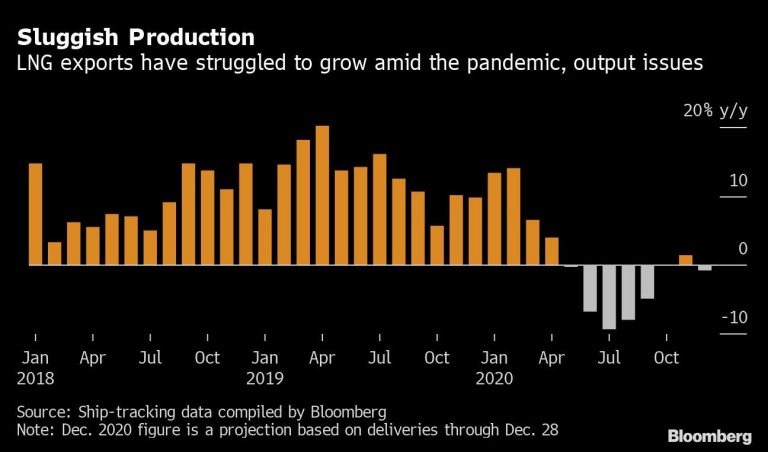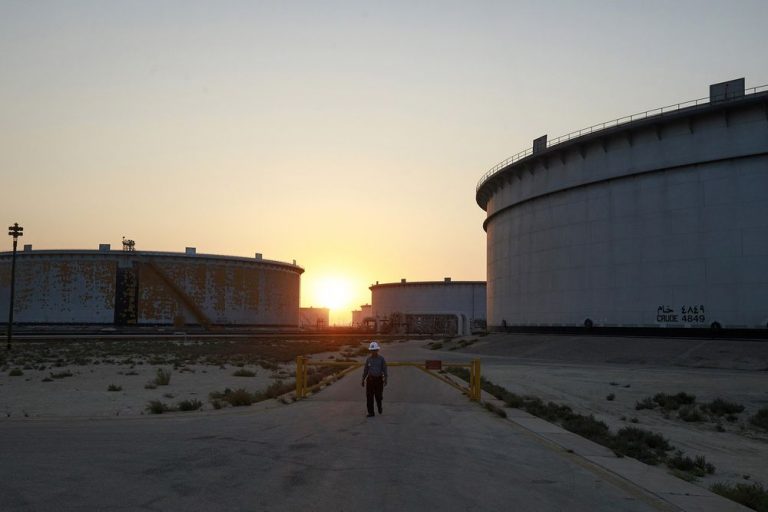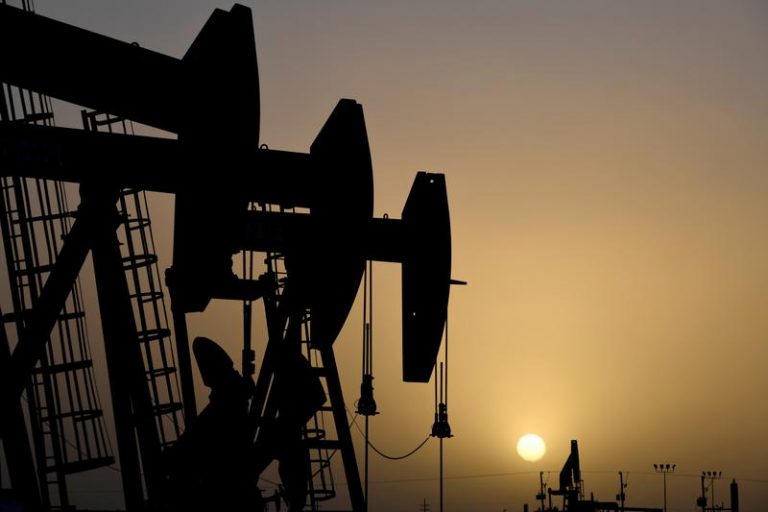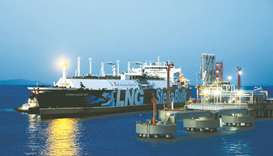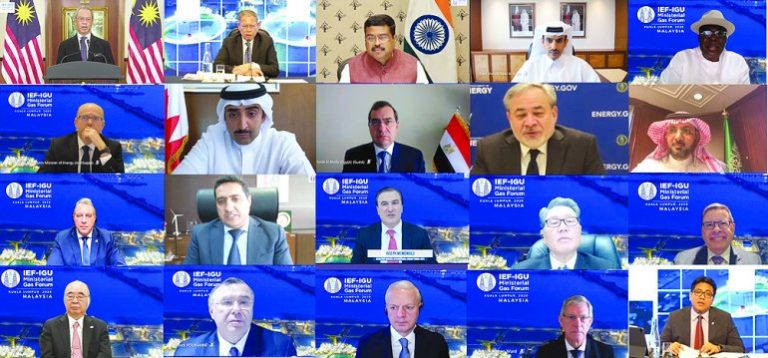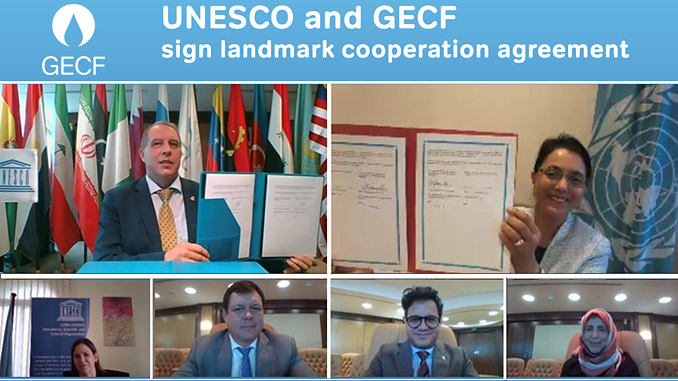Brent crude topped $50 a barrel last week for the first time since March, a milestone for an oil market that’s been grinding its way back out of a deep slump for months.
Things aren’t back to normal yet, but the positive signals are proliferating. The enormous glut of fuel that accumulated this year on everything from tiny barges to giant supertankers is being steadily depleted.
While the coronavirus pandemic is worse than ever in the U.S., demand in Europe is bouncing back as a second wave of lockdowns eases and Asia continues to pull in huge volumes of crude.
But there’s more to this than a realignment of supply and demand — huge financial flows are also driving the price rally. In a world that’s expecting to see travel recover sharply next year, crude has become a hot Covid-vaccine trade.
“Oil is the cheapest of all reflation assets,” said Amrita Sen, co-founder of London-based consultant Energy Aspects Ltd. “With vaccines slowly rolling out, we expect investors to start returning to the oil sector and for prices to continue firming.”
In some corners of the world, the recovery in demand is almost complete. India’s largest refiner said last week its plants are processing at full capacity and it’s expecting a v-shaped rebound in fuel use. Consumption of gasoline is also at or near pre-Covid levels in China and Japan, the world’s second and fourth biggest oil consumers.
European motorists are hitting the roads again as governments relax national lockdowns in countries including the U.K., Spain, and France, according to an index of road usage and traffic compiled by Bloomberg News. Road freight is sharply higher as companies rebuild inventories and the Christmas shopping season gets in full swing.
As demand is recovering, the Organization of Petroleum Exporting Countries and its allies are keeping tight limits on production. The group canceled January’s 1.9-million-barrel-a-day supply hike and will instead add no more than 500,000 barrels a day to the market each month in the new year. Estimates for U.S. shale oil output are still falling.
Cargoes of crude are changing hands at higher prices from the North Sea to the U.S. shale heartland of Midland, Texas as consumers trawl the globe for extra supplies. Saudi Arabia raised the cost of its oil for Asia — a benchmark for the world’s refiners — by the most since August last week.
Hot Money
A more subtle shift in the market has also got traders excited. For most of December, nearby crude futures have been trading at a premium to later-dated ones, a price structure known as backwardation.
That buying of contracts at the front of the so-called price curve is evidence that managed money is flowing into the market, Eagle Commodities said in a note. The steeper the backwardation, the greater the return from holding futures from one month into the next, which encourages further buying in a “self-reinforcing cycle,” the brokerage said.
In recent weeks, cash has poured back into energy markets. Holdings of energy contracts rose by $3.6 billion through early December, according to JPMorgan Chase & Co., driven by inflows into Brent and West Texas Intermediate. Investors pumped money into U.S. exchange-traded energy funds last week, with a swing of almost $400 million from the prior period’s outflows.
Price Risks
“Right now, oil has priced in that promising future,” said Victor Shum, vice president of energy consulting at IHS Markit Ltd. in Singapore. “While we have to deal with the immediate dark Covid winter.“
There are reasons to think $50 could be oil’s ceiling for now. The price could tempt producers from Baghdad to Oklahoma to increase production. There are already tensions within OPEC+, with some members chafing at the cartel’s self-imposed supply limits.
“A persistent rally could turn OPEC+ much less conservative, in turn driving a price pullback,” said Citigroup Inc. analysts including Ed Morse.
The backwardation that’s attracting speculators could also draw real barrels into the market, because the price structure isn’t profitable for any traders still storing physical crude.
On the west coast of South Africa, a supertanker loaded oil from the tanks at the Saldanha Bay storage terminal earlier this month before sailing to Asia. It’s a reminder that there are still plenty of barrels left over from the spring surplus.
Relentless Asian buying may pause at some point, especially with Lunar New Year celebrations starting in early February. Higher-cost crude will start to dampen the profitability of refiners in the region. A standard refining process in Singapore is now loss-making when using five of the eight oil grades tracked by Oil Analytics Ltd.
For now, positive trends in fuel consumption are buoying traders’ desire for both real and paper barrels. And there could be more hot money coming down the pipe.
At the start of 2021, billions of dollars of commodities investments will be affected by a broader rebalancing of portfolios. The move could attract $8 billion of inflows into Brent and WTI futures, according to Citigroup.
“There’s been a distinct shift in the financial oil market,” said Michael Tran, an analyst at RBC Capital Markets. Speculators are buying futures and holding onto them, scared that they’ll miss out on a further rally, he said.
— With assistance by Sarah Chen, and Sharon Cho

